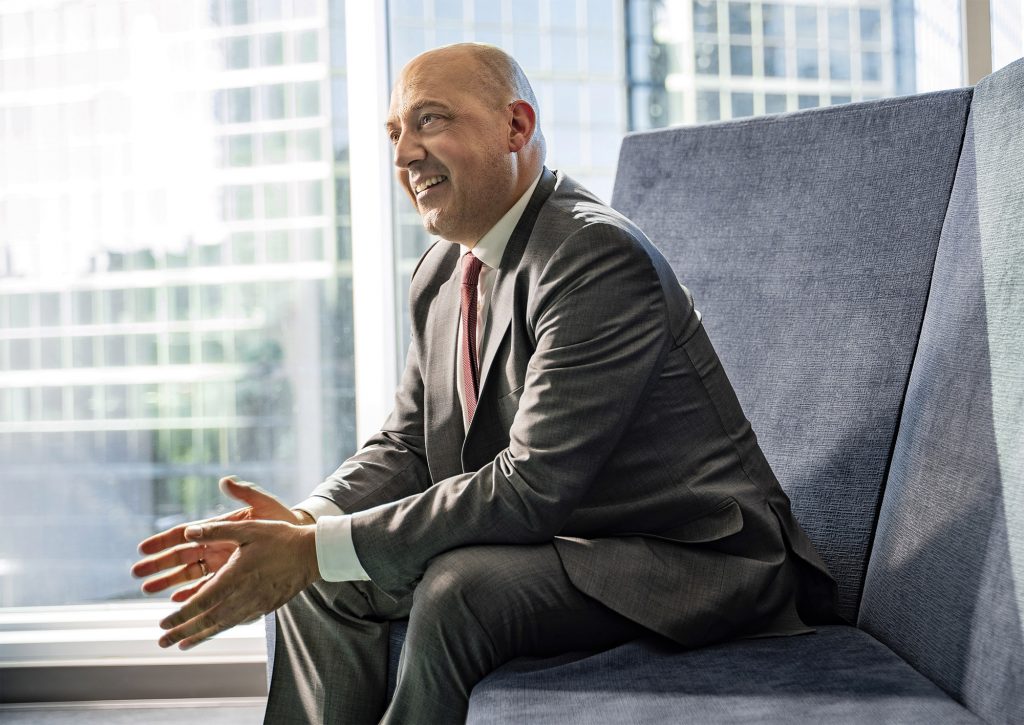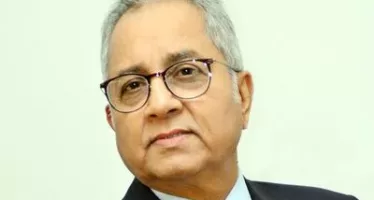In Conversation with Eduard van Gelderen, CIO at PSP Investments: Connecting to What Matters
Eduard van Gelderen, PSP’s CIO since 2018, leads the organisation’s Total Fund Strategy Group — overseeing multi-asset class investment strategies, total fund allocations, and exposures in terms of asset classes, geographies and sectors. He is also in charge of responsible investment, government relations, and public policy functions.

Senior Vice President and Chief Investment Officer, PSP Investments: Eduard van Gelderen
What’s your view of this year’s return?
It was a good year for PSP Investments, with a one-year net rate of return of 18.4 percent — the best in 10 years. Public equities recorded very strong performance amid the recovery that followed the COVID-19-induced decline in global equity markets at the end of the previous fiscal year.
A comparison over PSP’s longer investment horizon is also particularly meaningful. PSP’s return of 8.9 percent over the past 10 years exceeds the Reference Portfolio’s 8.2 percent return, which indicates that we continue to fulfil our objective of adding value through portfolio construction and active investment activities.
What impact did COVID-19 have on investment deal making and due diligence?
Interestingly, it didn’t slow us down. It simply challenged us to be more creative and find different ways to get things done. Our teams adjusted quickly to the new reality of remote working and were able to continue doing business. When they couldn’t travel to conduct due diligence on an investment, they relied on trusted partners.
What steps have you taken to embed responsible investment into PSP’s investment process?
Responsible investment has been an integral part of our investment process for many years — every transaction submitted to our investment committee includes an ESG assessment. For private markets, we assessed more than 140 direct investment opportunities from an ESG perspective — focusing mainly on employee health and safety, labour practices, business ethics, cybersecurity and climate change risks.
For public markets, we supported more than 150 ESG assessments, with proxy voting and engagement activities related to listed companies continuing to be an important area of focus too. I am very impressed that we were able to do all this in a work-from-home environment.
A significant part of our work is developing tools to harness and capitalise on the increasing amounts of ESG data available to us. This data will enable our ESG activities to become more fact-based. These new tools not only improve our capacity to assess risks but are also being used to help identify investment opportunities that arise in an ever-evolving landscape. This is a second important shift in our ESG approach. Our climate change toolkit helps our investment professionals assess climate-related risks and opportunities in all our private market investment opportunities. We are very keen to understand and adequately assess the investment opportunities and assets related to the energy transition, as well as low-carbon assets.
This is why we assembled a multi-asset class deal team — the Climate Working Group — to determine actionable investment opportunities and to start due diligence on a select number of them.
You may have an interest in also reading…
Invest Durban: ‘First-Stop-Shop’ to Stimulate Growth in South African Metropolis
Invest Durban was an initiative recommended by the Durban City Council and private businesses as the “first-stop-shop” to stimulate new
MauBank CEO is a Lifelong Learner — with No Fear of Tough Lessons
Mauritius-based financial institution MauBank is celebrating victory in two CFI awards: Best Digital Transformation in Banking, Mauritius Best Growth Strategy,
Equipment Leasing in the UAE: What Do a Bio-diesel Refinery, a Fork Lift Truck and a Laser Hair Removal Device Have In Common?
Leasing originated in the Middle East in 2000 BC, when Mesopotamian landowners hired-out farming equipment — with an option for


















































































